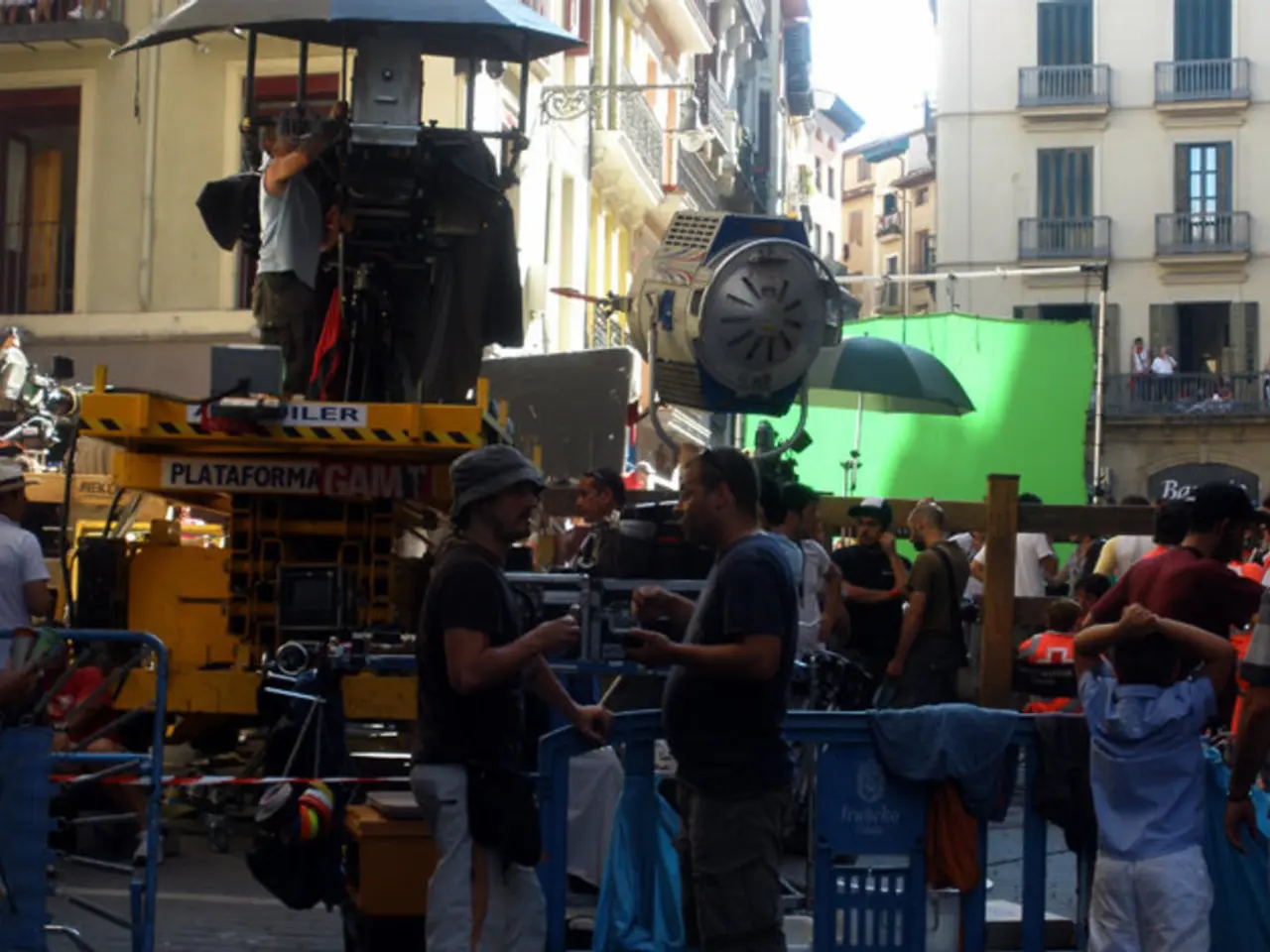Upcoming Cinematic Trends in 2023: A Comprehensive Insider's Guide
### Transforming Film Production: The Rise of AI and Virtual Production (2023-2025)
In the realm of professional filmmaking, **a significant shift is underway as AI and virtual production techniques reshape the industry**. Over the past few years, these advancements have enhanced creativity, streamlined workflows, and reduced costs, though their full transformative potential is still emerging.
#### Creative Enhancement and Technical Support
AI is being integrated into various stages of film production, from visual effects to sound design, digital editing, and even voice alterations. Films like *F1 The Movie* have demonstrated how AI can improve realism and efficiency in post-production, leading to faster workflows and new business opportunities within the industry.
#### Generative AI Tools
Technologies such as Runway, ElevenLabs, Midjourney, and Google's Veo 3 and Flow are pioneering generative AI that combines voice, facial expressions, music, and sound effects. These tools enable filmmakers to create entire scenes or videos efficiently from text, images, and audio, significantly reducing the technical burden on artists and directors while allowing a greater focus on creative decisions.
#### Limitations and Industry Response
Despite these advances, experts and industry insiders recognize that AI is not yet capable of fully replacing traditional filmmaking, particularly in feature-length projects. The technology is still seen as a tool to assist rather than supplant human creativity, akin to CGI in earlier decades. Additionally, there is notable resistance within the industry, exemplified by the 2023 strike of over 11,000 Hollywood writers protesting the uncontrolled use of AI in content creation.
#### Artistic Innovation and New Storytelling
Directors like Michaela Ternasky-Holland are using generative AI and immersive technologies such as virtual reality to push the boundaries of storytelling, creating interactive, impactful narratives that were previously difficult to realize. This illustrates AI's role not just in efficiency but in expanding artistic expression.
#### Virtual Production Techniques
Virtual production techniques, such as LED walls and real-time rendering engines, are fundamentally altering digital filmmaking. Films like "Nope" utilize hybrid approaches that combine practical foundations with digital enhancements to create memorable sequences. Game engines like Unreal Engine 5 are democratizing access to high-quality visual effects, with various budget levels able to utilize the technology.
#### Immersive Technologies
Immersive technologies, such as virtual reality (VR), augmented reality (AR), and interactive storytelling techniques, are reshaping audience experiences in professional filmmaking.
#### Inclusion Initiatives
Major studios and production companies have implemented inclusion initiatives focused on developing diverse talent in directorial, writing, and producer roles. Environmental consciousness has moved from the periphery to become a central consideration in professional filmmaking, with productions implementing carbon-neutral shooting practices and sustainability frameworks.
#### Resurgence of Practical Effects
The resurgence of practical effects and hybrid techniques in professional filmmaking is notable, with directors like Christopher Nolan, Jordan Peele, and Greta Gerwig championing tangible, in-camera solutions. The 2023 Directors Guild of America report showed women directing 25% of feature films-a historic high, yet still far from parity.
#### Authentic Representation and Commercial Success
The commercial success of films like "Everything Everywhere All at Once," "Black Panther: Wakanda Forever," and "Women Talking" demonstrates that authentic representation resonates with audiences while opening new narrative territories that enrich the cinematic landscape.
#### Social Media Integration
Social media integration has transcended traditional marketing to become an essential component of the filmmaking process itself. Volumetric capture, the process of recording subjects from multiple angles to create three-dimensional assets, is advancing rapidly toward mainstream adoption in professional filmmaking.
In essence, **AI and virtual production are transforming professional filmmaking by augmenting both the creative and technical sides of the industry, making production faster and less costly while opening new avenues for storytelling. However, full disruption remains gradual due to technical limits and ongoing debates about AI’s role in creative authorship**.
- Post-production workflows have been significantly optimized with the integration of AI and virtual production techniques in the realm of professional filmmaking.
- Wearables, smart-home-devices, and gadgets continue to play a crucial role in technology advancements, impacting various aspects of life beyond filmmaking.
- Cybersecurity remains a concern for the increasing digitalization in our lives, as more data is stored in data-and-cloud-computing services.
- The rise of AI and virtual production has also influenced the production of entertainment content, such as movies-and-tv shows, transforming them into more immersive and interactive experiences.
- Artificial-intelligence is being employed in various stages of content creation, from writing and storyboarding to editing and post-production, aiding in productivity and streamlining workflows.
- Personal-growth books and online-education resources on technology, AI, and machine learning have gained popularity, fueling learning and lifelong-learning among individuals.
- Social-media platforms have become essential tools for marketing movies and TV shows, allowing for targeted promotions and deeper audience engagement.
- Mindfulness and mental health resources, both online and offline, are experiencing increased demand as people grow more aware of the importance of self-care and wellbeing.
- The integration of virtual reality, augmented reality, and other immersive technologies has drastically changed how people consume entertainment and media, offering new, interactive experiences.
- Pop-culture, particularly in genres like sci-fi-and-fantasy, continues to reflect our fascination with AI and virtual production, shaping how we perceive and imagine their roles in the future.
- Goal-setting and self-development techniques like SMART goals and mind mapping are widely used in the tech industry, fostering personal growth and productivity in the fast-paced technological landscape.








